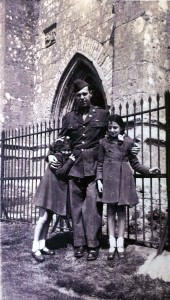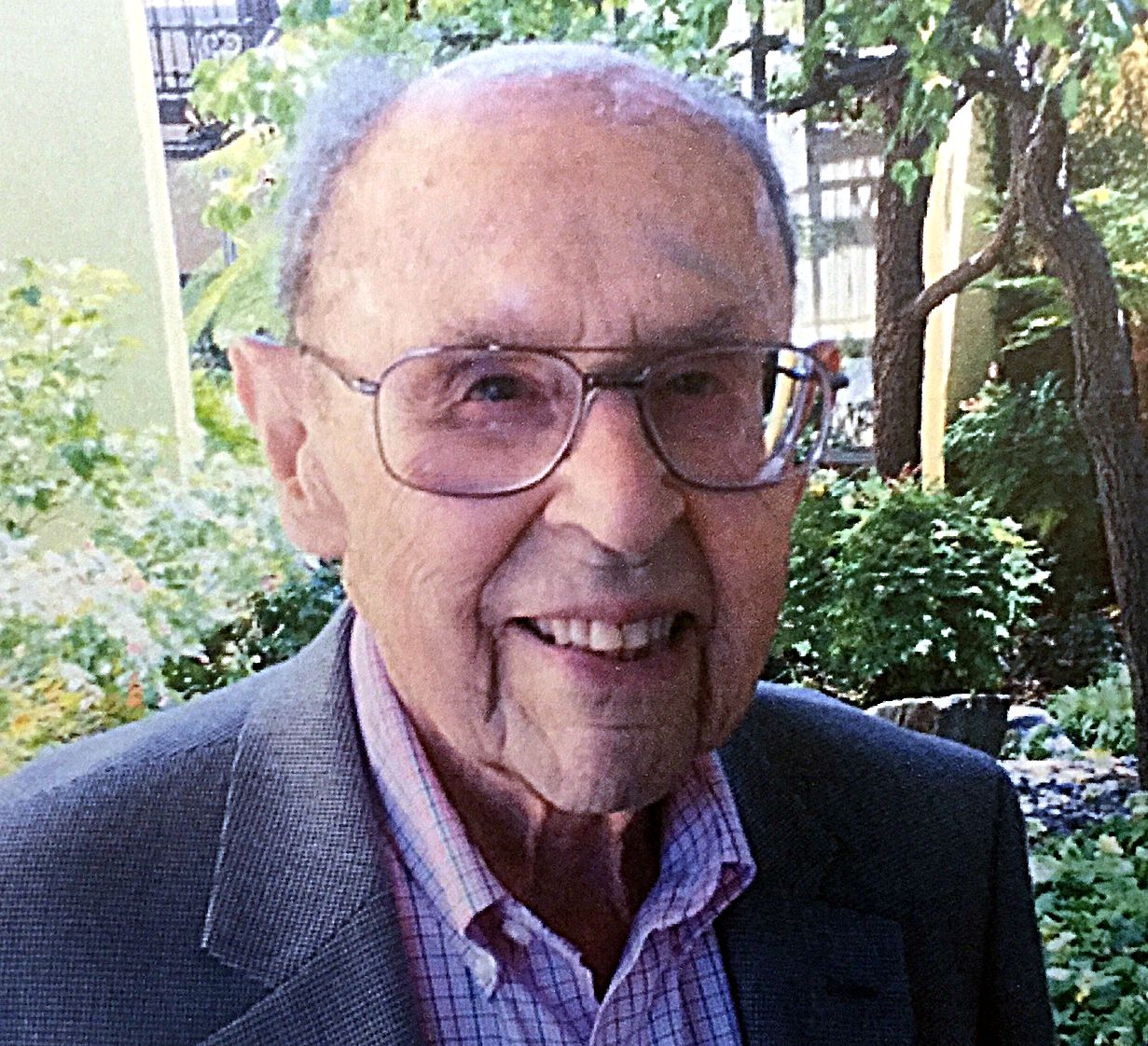 Born in Minneapolis, September 15, 1918
Born in Minneapolis, September 15, 1918
Was drafted and served in the US Army overseas as a medical professional (first dental then psychological)
Mother Dora Friedman
Father born in what is now Romania in a place called Tulchia in the area of the Black Sea. Came to US at age 13 in 1889 and became a successful merchant.
6:46 Mother and father met at a literary society held in Minneapolis
Had two older brothers and two older sisters
The Depression
8:35 The recession was making due with what you could afford.
Not super religious but attended temple.
Parents instilled integrity and honesty and work at getting an education.
13:08 Received a BA degree in Business Administration in college.
13:52 Became involved in the war in June of 1942 at 24 years old
Pearl Harbor
14:34 I remember it very well. It received the same kind of shock that 911 received many years later. “How could this be?” “We didn’t really know immediately how devastating it was except that it was a terrible attack.” I remember hearing about it while getting up in the morning at my father and mother in law’s home. We monitored the news and waited for FDR to come on and say, “This will be a date that will live in infamy” and then tried to continue on with our lives. But I knew that I would be involved in the Army.
Drafted in the Army
15:34 I did not sign up. I waited for my number to come up and I was drafted in June of ’42.
About the Jews
16:16 We heard rumors that the Jews were being executed and terrible things, and the stories were so terrible we could hardly believe. We knew that anti-Semitism existed, but that they were being summarily executed, that’s something else.
17:06 Married his wife in October 1941 before he went to war . Looked for apartments and if the apartment said “restricted” that meant Jews were not welcome. The minorities were well segregated.
The Army
18:24 The Army did its usual procedures and they seemed to decide I should be in a medical portion of the Army. So they sent me to Camp Grant which is near Champagne, Illinois, for basic training and that was a three month training.
19:13 After basic training they said, “Well, I think that we can make a dental technician out of you,” so they sent me some place in India. I learned how to carve teeth and recognize teeth and other things that dental assistants do.
19:41 I was sent to a hospital unit that was stationed near Boston
19:43 Not pleasing job- applied for both officer Candidate school and the Army specialized program – it was training in various advanced activities as it turns out that came through first, and I was sent to Purdue University and went through about a year of training in personnel work and personnel psychology. Following that program the Army said, “You better go overseas.”
20:55 They sent me to the headquarters of the 54th replacement battalion to receive units from wherever they might be to interview them; to classify them for their Army specialties and then send them to whatever units or wherever activities were needing those specialties.
So the upside of the transfer was that I spent a few months in England and then they moved me to Marseilles, France. This was about six months after the initial landing on the beaches so we were in very good position. We didn’t have to do some of the things that these other guys had to do.
The areas that we were in the Germans were gone but still in the North.
22:52 In the fall of 1944 we were receiving troops from Africa and interviewing and classifying them and sending them north to defend the battle of the Bulge.
23:13 All the troops came to stay at the camp. They hit our camp around Thanksgiving and “the Army was able to obtain turkeys no matter what”
We had a group of about ten and we were each interviewing 20-30 people a day and we were looking for specialties that the Army requested most of them were for infantry service, not really mental screening but physical screening occasionally.
By and large most of the people that came through the port of Marseilles and our camp were sent on to the battle of the Bulge because that’s where the need was.
25:26 The battle of the Bulge was not going well and had the Nazis broken through our lives would be different today.
26:58 I was in Marseilles about a year and a half until VJ Day – that was July 1945.
27:58 I didn’t like the Army, I didn’t like the restraints that it put on our personal liberty. Any glimmer of the end of the war was always greeted with a lot of joy
28:41 After VJ Day I was sent to Beerwitz(?) at my request which is a resort area in France. I spent the last month or two at an Army University there. I returned home November 1945.
30:50 About the Army: I felt that it was a job that needed to be done and good riddance I was glad to be through with it.
31:39 It was an effort that everbody participated in in contrast to wars since then when we’ve had soldiers and civilians who don’t really feel the effect in the same way that WWII did.
32:10 Roosevelt: He became a father figure, I think, to the country. When he died there was this terrible let down. Truman came in and took over and he did a fine job, I think. I don’t remember being involved in politics in my younger years nearly to the extent that I feel even now.
What changed? Aging and the time to discuss as opposed to the time that it takes to make a living, and family, of course.
33:48 I think the war years were important in showing how you have to work in a group which had not been my forte prior to that time.
36:33 It was a long time to get from England to France. Nobody knew why, but it turns out there were some dangers
37:59 The Lend Lease program: it was a program in which we would send war materials to England. Any payment for those materials was deferred. It was an advance to England that would be paid for at some later date.
40:14 The work I did in Purdue formed the basis for me to come back from the war and get a masters degree in personnel psychology.
41:45 Daughter was about 18 months old when he returned from the war .
42:25 The aftermath didn’t help those who were executed, but if the Nazis had prevailed at the Battle of the Bulge who knows what would have happened throughout the world and this country.
45:59 A member of the congregation but not heavily involved. I admire Rabbi Cohen particularly for his efforts . Good recollections of the past and a feeling of belonging to the Jewish community.
47:12- I want my family to maintain the same values that we have maintained throughout the years.
I think the most important thing is the love of family, tolerance and also putting a strong value on friendship. When you’ve got that you’ve got everything you need in the world.
I think raising a family has been my best achievement.
